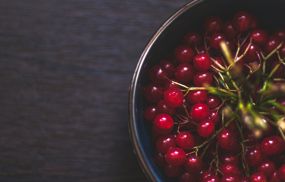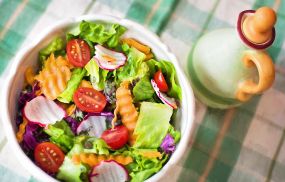Vitality Stories

Stem Cell Therapy Uses: What Regenerative Medicine Can Treat—and the Stem Cell Risks to Know
Stem cell therapy uses are expanding in regenerative medicine, but risks and limits remain. Learn which conditions stem cells can treat safely and which remain experimental. 
Autophagy Benefits: How Longevity Science is Revolutionizing Cellular Repair for a Longer Life
Learn about autophagy benefits in longevity science. Understanding that cellular repair through autophagy can extend lifespan and improve healthy aging naturally. 
Longevity Diet: Blue Zones Foods and Healthy Aging Tips from the World's Longest-Living People
Discover the longevity diet secrets: blue zones foods like beans, greens, and nuts, plus healthy aging tips from world's longest-living people for vibrant, extended lifespan. 
Best Anti-Aging Supplements That Work in 2025: Longevity Vitamins & Proven Collagen Benefits
Discover proven anti-aging supplements, longevity vitamins, and collagen benefits that work in 2025. Backed by science for skin, vitality, and real results. 
Osteoporosis Symptoms & Brittle Bones Warning: Why Women Over 40 Face Rapid Bone Density Loss
Understand osteoporosis symptoms, bone density loss causes, and brittle bones risks in women over 40. Learn prevention, screening tips for stronger bones. 
Revolutionizing AI Healthcare: How Medical AI Tools Power Faster Early Diagnosis Tech
AI healthcare and medical AI tools accelerate early diagnosis tech, enabling faster, more accurate disease detection that improves patient outcomes and transforms healthcare delivery. 
Microplastics Health Effects: Are Environmental Toxins and Plastic in the Bloodstream Dangerous?
Explore the health effects of microplastics, environmental toxins, and the presence of plastic in the bloodstream to understand potential human health risks. 
Why Children Struggle to Sleep: What's Keeping Kids Awake From Stress to Nutrition
Many kids struggle with sleep due to anxiety, diet, medical issues, and poor habits. Learn the causes of child sleep problems and how to improve pediatric sleep. 
Is Intermittent Fasting Safe? Doctors Reveal the Real Benefits and Risks You Need to Know
Intermittent fasting offers benefits but also risks. Learn what research says about safety, long-term effects, and how to practice fasting responsibly. 
Always Tired and Low Energy? Here's What Doctors Want You to Know About Chronic Fatigue Causes
Learn the real causes of chronic fatigue, why you always feel tired, and when to seek help. Science-based insights into fatigue symptoms, health conditions, and recovery. 
Can You Really Boost Your Immune System? Science-Backed Tips and the Biggest Immunity Myths
Science-based tips to boost immune system health. Learn what actually strengthens immunity, debunks myths, and supports long-term wellness through proven habits. 
Boost Vitality Nutrition: Top Nutrient Rich Foods and Superfoods for a Lifelong Health Diet
Discover the best nutrient rich foods and superfoods vitality for boosting energy and supporting a balanced lifelong health diet to enhance overall wellbeing. 
Dietary Supplement Sold at Sam's Club Recalled as Salmonella Sickens 11 People
Sam's Club recalls all Member's Mark "Super Greens" powders after salmonella outbreak sickens 11 people across seven states. 
How Sleep and Stress Control Vitality: Essential Lifestyle Factors for Better Health
Sleep and stress shape vitality. Learn how lifestyle factors, healthy habits, and stress management boost energy, health, and long-term well-being. 
How to Feel More Energetic: 5 Daily Habits That Boost Vitality and Longevity
Boost your energy and support long-term vitality with five simple daily habits for better sleep, nutrition, exercise, stress management, and focus.



























